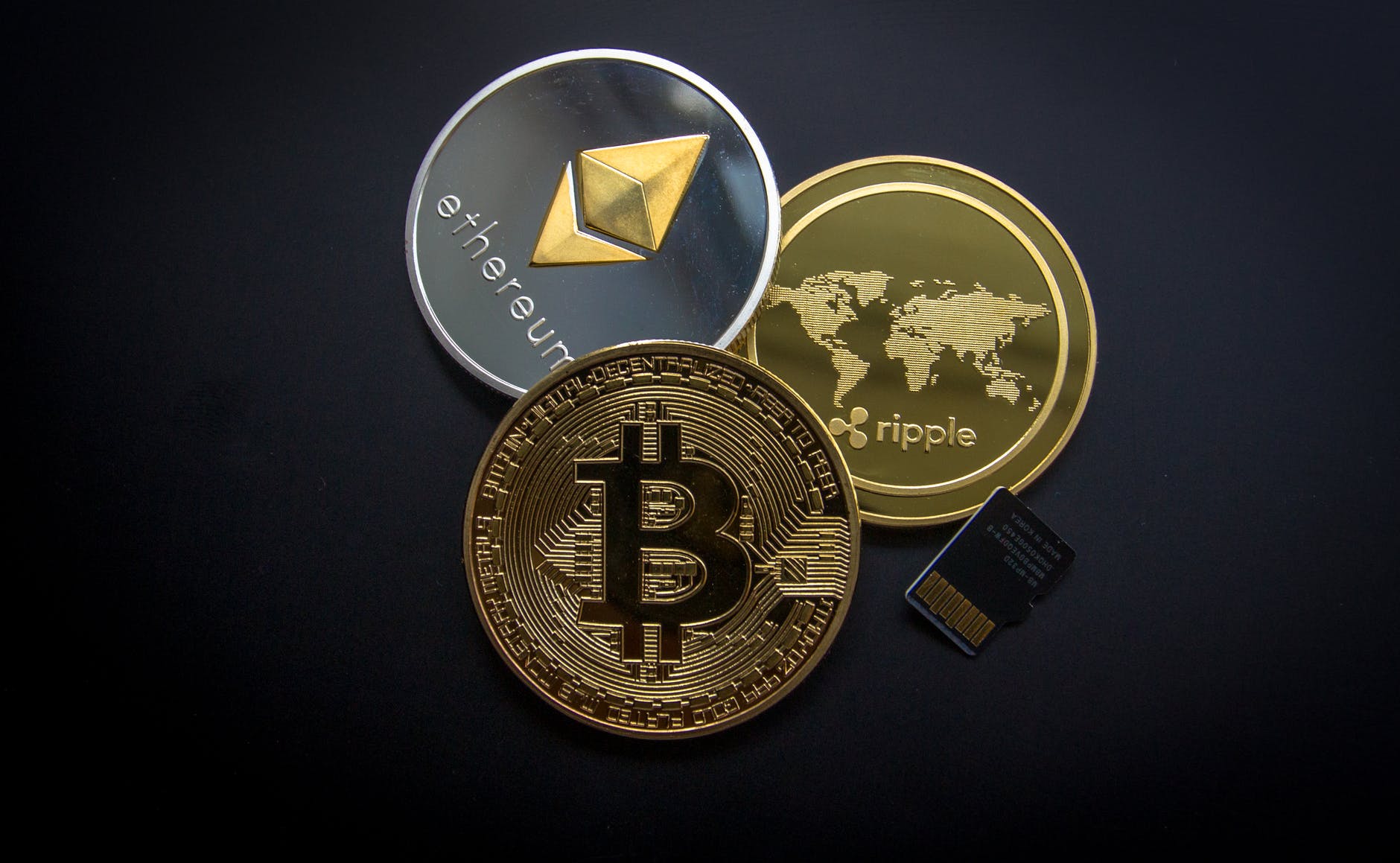While cryptocurrency has grown in popularity over the past few years, there is still more to understand about this rapidly changing technology. Numerous concerns and doubts are being expressed about technological advancements and their potential to destabilize established financial institutions. Intermittent thoughts regarding the future of bitcoin are common these days.

You can read these three articles on the Word Street Journal to learn more about Cryptocurrencies:
3. History of Cryptocurrencies
Here, I will discuss how bitcoin represents the potential future of the global business sector and banking systems for enhanced and secured transactions.
What Future Does Bitcoin Hold for the Business Sector?
With time, bitcoin or such digital assets will have an increased influence on financial service organizations. I think that the continued prosperity of these assets will heavily rely on the coordination of efforts by global regulators and policymakers to oversee and increase market players’ trust in them.
But, perhaps most crucially, I believe that the blockchain technology- which runs cryptocurrencies and offers the establishment of a shared digital transaction ledger- can be a good disruptor for a variety of financial value chains.
A significant and long-lasting influence on how the current system works in terms of speed, traceability, and cost of banking transactions can make it the first choice for secure banking in the coming time.
With the introduction of the new digital currency, business transactions become seamless, and businesses can deal without worrying about borders. The future of bitcoin is promising in terms of the business sector.
More Businesses are Moving toward Bitcoins
The benefits like transparency, security, credibility, and speed have made bitcoin the first choice for big companies to invest in. Recent infusion of money in Bitcoin by the software business across the globe has made the cryptocurrency more popular within the industry. Besides, it shows the confidence of tech giants in the decentralized mode of exchange.
Such purchases by high-end multinational corporations provide Bitcoin with marketing support and open the door to new opportunities for growth. The primary reason why corporations are progressively stepping in is to take a cautious approach, with smaller firms choosing a lower investment while larger organizations such as Tesla and others going all-in on their efforts.

It’s also gotten substantially simpler to access or use Bitcoin, which I feel is another cause for the increased interest among ordinary people. For a long time, buying and keeping Bitcoin was a difficult task – it was unnecessarily complicated, particularly for non-tech people.
But, with digital wallets and access to bitcoin trading platforms, we can now easily buy or sell bitcoins only with our smartphones.
Today, more businesses accept Bitcoin as a valid form of cash and integrate blockchain into their operations in innovative and creative ways. Due to the increasing understanding of Bitcoin among the general public, it is becoming simpler for individuals with less technical knowledge.
This is making big companies think about the future of cryptocurrency, where it could become the new cash or digital currency used by people daily.
Bitcoin is smashing all-time high records with each passing day. Major institutional investment corporations are shifting their cash holdings to Bitcoin, developing widespread infrastructural support for the cryptocurrency. These factors indicate that Bitcoin’s future as a significant currency is bright and that its long-term viability has been established.
Tesla Invested $1.5 billion in Bitcoins
Inventor and self-proclaimed “TechnoKing” of Tesla, Elon Musk, has recently earned quite a reputation for himself in the news media. Musk has put a face to the institutional acceptance of cryptocurrency, starting with his comments on the meme-coin, Dogecoin.
He most likely has a significant hand in pumping Bitcoin after updating his Twitter bio to include Bitcoin and subsequently purchasing $1.5 billion worth of the cryptocurrency for Tesla. Recently, his firm has also revealed that consumers would be able to buy their automobiles using Bitcoin as a payment option.
Crowdfunding and Capital Raising with Improved Transparency
Online fundraising services are pretty popular among corporate individuals. With bitcoin integration, fundraising can be done transparently. The decentralized method makes it easier for individuals or groups to ask for crowdfunding while being unambiguous regarding donations.
While using a dedicated blockchain wallet, you will be able to keep track of the entire amount of donations you have received. Additionally, it will enable fundraisers to avoid paying fees to third-party platforms while maintaining the trust of their contributors. A cryptocurrency wallet also allows all parties to observe how much money has been raised.
Bitcoin’s Future- A Threat to the Traditional Banking System?
The traditional banking system has a lot of issues and problems, leading to enormous economic crises in the past. But, Bitcoin could be the way to ensure that those things never happen again.

A botched up economic policy and a succession of incorrect judgments by local Federal Reserve banks resulted in the Great Depression, the most severe economic downturn in the history of the United States.
There have been previous instances of economies collapsing due to the Federal Reserve relaxing its control over them and following a policy of low-interest rates, such as during the Global Financial Crisis and Great Recession of 2008.
The speed with which money circulates throughout the global economy has grown due to the digital revolution. Financial activities and operations have gotten increasingly abstract and harder to comprehend in recent years. This makes it really challenging for the traditional banking system or the existing structure to ensure 100% transparency and security.
The economic and technological arguments in favor of Bitcoin as a central bank substitute are compelling. “Bitcoin is a peer-to-peer version of electronic cash,” according to Satoshi Nakamoto, the cryptocurrency’s creator.
He describes it as “an online payment instrument that allows payments directly from one person to another without passing through a banking institution.” It can be done anonymously as only one wallet address is available, so no one can trace the seller or buyer within the transaction.
Although Bitcoin is decentralized, the Bitcoin network still is a reliable system. Developed using an algorithm, it does not have any third party in between the transactions. Before a transaction on the Bitcoin network can happen, it needs to be recorded in the ledger and must be authorized by nodes located all over the world.
Bitcoin’s ledger can be invalidated by a single disagreement by a node, even if it is only a minor dispute among nodes.
Along with that, it eliminates any concern about being compromised. It is impossible to hack or generate new bitcoins since they are unique and cryptographically guarded. Bitcoin can’t be spent more than once, and it can’t be faked.
In addition, by expediting the production and distribution of money, the Bitcoin network removes the need for a central infrastructure. A complete node system enables anybody to sell or buy bitcoin from the comfort of their own homes. Hence, it doesn’t need an infrastructure of banks chartered by a central body for distribution.
Cryptocurrency can help eliminate all the existing “loopholes” in the financial and banking sector. Compared to regular banks, crypto banks are more resistant to data and currency hacks since cryptocurrency transactions are protected and encrypted while still being anonymous, as explained above.
Frauds are virtually impossible in this unique crypto banking system since there is no concern of counterfeit cash because, well, basically, it is hard to counterfeit a cryptocurrency in the first place.
Is Bitcoin Worth Collecting Like Gold?
Some of the most ardent cryptocurrency users keep their coins for the same reasons some people hold gold. Compared to the precious metal, bitcoin is young and has no demonstrated history of long-term value, making it challenging to think about it as an asset similar to gold.

When it comes to cryptocurrency, it excels at the ability to keep your funds protected using an offline wallet and the fact that it has a limited quantity, which fosters an exponential rise in value as demand increases.
In light of the capacity to immediately transfer coins anywhere globally, the rise in demand and overall worth of bitcoin might result in it becoming a widespread method of payment in the commercial sector and peer-to-peer transactions in the future.
According to the experts, and considering the continuous investment of businesses in technology, it is fair to say that bitcoin is the potential future for the business sector and banking system.

Leave a Reply